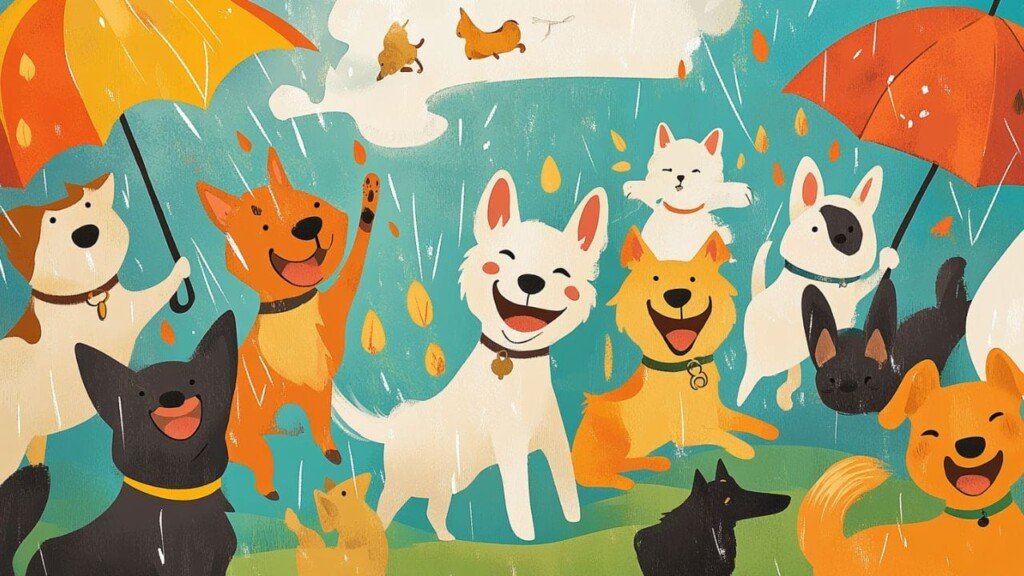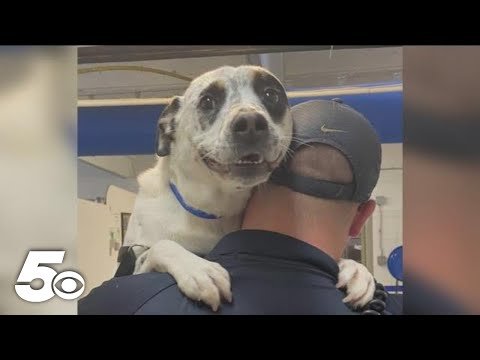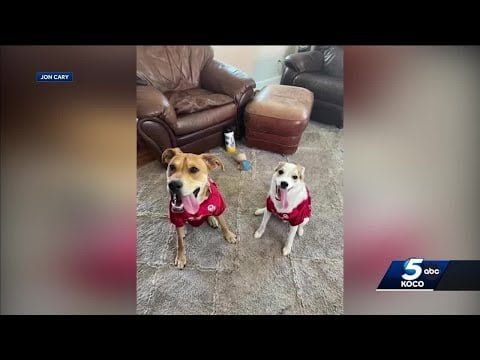Our four-legged friends have left their paw prints all over the English language.
From ancient sayings to modern slang, dogs have inspired countless idioms that we use daily.
Let’s dive into 30 of these canine-inspired expressions and uncover their fascinating origins.
Weather-Related Woof-isms
Raining Cats and Dogs
This bizarre phrase likely comes from Norse mythology, where Odin, the god of storms, was often pictured with dogs and wolves, symbols of the wind.
Witches, who were believed to ride through the sky during storms, were often depicted with black cats.
Hence, “raining cats and dogs” referred to a particularly heavy storm.
Every Dog Has Its Day
This saying means everyone will have a moment of glory or success eventually.
It’s thought to have originated from a medieval belief that even the most unfortunate dog would get a day of freedom to chase rabbits.
Canine Character Traits
Dog-Tired
When you’re extremely tired, you might say you’re “dog-tired.”
This phrase likely comes from the image of hunting dogs exhausted after a long day’s chase.
Sick as a Dog
While dogs aren’t necessarily sicker than other animals, this phrase may come from the fact that dogs often eat things they shouldn’t, leading to visible illness.

Doggy Dynamics
Let Sleeping Dogs Lie
This wise advice suggests not disturbing a potentially dangerous situation.
It likely stems from the very practical warning not to wake a sleeping dog, which might be grumpy or bite.
Gone to the Dogs
When something has “gone to the dogs,” it has deteriorated badly.
This phrase may originate from the practice of throwing spoiled meat to the dogs.
Puppy Perseverance
You Can’t Teach an Old Dog New Tricks
This saying suggests it’s hard to change established habits.
While not entirely true for real dogs, it’s been a popular saying since the 1500s.
Barking Up the Wrong Tree
When someone is mistaken or misdirected in their pursuits, they’re “barking up the wrong tree.”
This comes from hunting dogs that would bark at the base of trees where they thought prey was hiding.
Doggone Difficult Situations
In the Doghouse
Being “in the doghouse” means being in trouble or disfavor.
It likely comes from the idea of a dog being banished from the house as punishment.
Dog-Eat-Dog World
This phrase describes a ruthlessly competitive world.
Interestingly, it’s a corruption of the Latin phrase “dog does not eat dog,” suggesting that even dogs treat each other better than humans sometimes do.
Tail-Wagging Triumphs
Top Dog
The “top dog” is the leader or most successful person in a group.
This likely comes from dog fighting, where the winning dog would physically be on top.
Lucky Dog
A “lucky dog” is someone who has good fortune.
This phrase plays on the generally pampered life of pet dogs.
Howling Hilarity
Dog and Pony Show
An elaborate or overblown presentation is often called a “dog and pony show.”
This comes from small traveling circuses that would visit rural areas with only a few acts, often featuring dogs and ponies.
Hair of the Dog
This remedy for a hangover (drinking more alcohol) comes from the old belief that the hair of a dog that bit you could cure rabies.
Canine Communication
His Bark is Worse Than His Bite
This saying describes someone who seems threatening but isn’t really.
It’s a straightforward comparison to dogs that bark loudly but rarely bite.
Throw Someone to the Dogs
To “throw someone to the dogs” means to abandon them to a bad situation.
This phrase has roots in ancient times when literal dog packs were a real danger.

Paw-sitive Attributes
Loyal as a Dog
This simile praises someone’s faithfulness, playing on the well-known loyalty of dogs to their human companions.
Work Like a Dog
To “work like a dog” means to work very hard.
This likely comes from the image of hardworking sheepdogs or sled dogs.
Dogged Determination
Dog with a Bone
Someone who won’t give up on an idea is often compared to a dog with a bone.
This refers to a dog’s tendency to gnaw persistently on bones.
Underdog
An “underdog” is someone not expected to win.
This term comes from shipbuilding, where the “underdog” was the person standing in the pit below the log being sawed, getting covered in sawdust.
Want to keep up to date with new animal stories?
Conclusion: A Dog’s Life in Language
Our language is truly a dog’s dinner of canine-inspired expressions!
From the weather to our work ethic, it seems there’s hardly an aspect of life that hasn’t been described in doggy terms.
These idioms not only add color to our language but also reflect the long and close relationship between humans and dogs.
They showcase how deeply intertwined our lives are with our furry friends, and how much we’ve observed and admired their behaviors over centuries.
So the next time you use one of these phrases, take a moment to appreciate the rich history behind it.
And remember, while you can’t teach an old dog new tricks, you can certainly learn new things about old sayings!
Share this post if you’re a language lover or a dog enthusiast!
Let’s celebrate the pawsome impact our canine companions have had on the way we speak.
After all, every dog has its day, and today is the day we recognize their linguistic legacy!
SHARE now with your friends!


